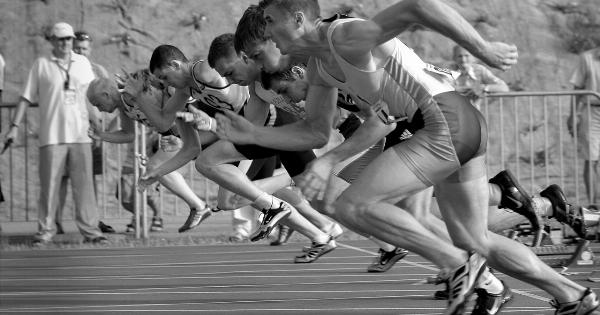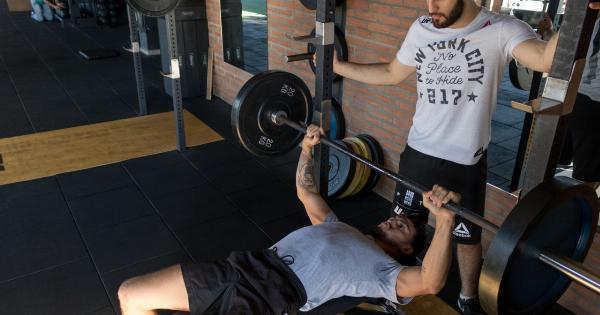Nutrition plays a crucial role in optimizing athletic performance. It provides the necessary fuel and nutrients for the body to perform at its peak level.
Athletes, regardless of their sport, need to pay close attention to their dietary choices to ensure they have the energy, endurance, and strength required to excel in their chosen discipline. This article explores the impact of nutrition on athletic performance and provides insights into how athletes can optimize their diet to enhance their performance and achieve their goals.
Understanding Macronutrients and Micronutrients
Macronutrients refer to the three main components of our diet: carbohydrates, proteins, and fats. Each macronutrient has a specific role in fueling the body and is essential for athletic performance.
The Role of Carbohydrates
Carbohydrates are the primary source of energy for athletes. They are stored as glycogen in the muscles and liver and are rapidly converted into glucose for immediate energy during exercise.
Athletes should prioritize complex carbohydrates such as whole grains, fruits, and vegetables, as they provide a sustained release of energy.
The Importance of Proteins
Proteins are essential for muscle growth and repair. Athletes require a higher protein intake to support muscle recovery and optimize performance.
Good sources of protein include lean meats, poultry, fish, dairy products, and plant-based options such as legumes and tofu.
The Role of Fats
Fats provide long-term energy for endurance athletes and help regulate hormone production. Healthy fats such as avocados, nuts, and olive oil should be included in an athlete’s diet, while saturated and trans fats should be limited.
The Significance of Hydration
Adequate hydration is vital for optimal athletic performance. Dehydration can lead to decreased energy levels, impaired cognitive function, and reduced endurance.
Athletes should aim to drink water throughout the day and consume extra fluids before, during, and after exercise, especially in hot and humid conditions.
Pre-Workout Nutrition Strategies
Consuming the right combination of macronutrients before a workout can significantly impact performance. Athletes should focus on consuming a balanced meal containing carbohydrates, proteins, and healthy fats about 2-3 hours before exercise.
This allows for adequate digestion and ensures a steady release of energy during the workout.
During Workout Fueling
For prolonged workouts or intense training sessions exceeding 60 minutes, athletes may benefit from consuming carbohydrates during the exercise. This can be in the form of energy gels, sports drinks, or easily digestible snacks.
These fueling strategies help maintain blood sugar levels, delay fatigue, and optimize performance.
Post-Workout Recovery Nutrition
The post-workout period is crucial for muscle recovery and glycogen replenishment. Athletes should consume a combination of carbohydrates and proteins within 30 minutes to 1 hour after exercise to promote muscle repair and growth.
This can be in the form of a protein shake, a balanced meal, or a snack containing the necessary nutrients.
Supplement Considerations for Athletes
While a well-balanced diet should meet most of an athlete’s nutritional needs, certain supplements may be beneficial in specific situations.
Athletes should consult with a registered dietitian or sports nutritionist before considering any supplementation. Common supplements for athletes include protein powders, creatine, omega-3 fatty acids, and vitamins/minerals.
The Role of Rest and Recovery
Optimizing athletic performance is not just about nutrition; it also involves adequate rest and recovery. Sleep, in particular, is vital for physical and mental rejuvenation.
Athletes should aim for 7-9 hours of quality sleep each night to support optimal performance and enhance overall well-being.
The Impact of Nutrition on Injury Prevention and Healing
Proper nutrition plays a significant role in injury prevention and healing. Consuming a diet rich in antioxidants, vitamins, and minerals strengthens the immune system and reduces the risk of illness and injury.
In case of an injury, obtaining adequate nutrition supports the body’s healing process and helps minimize recovery time.
The Role of a Sports Dietitian
Working with a sports dietitian can be highly beneficial for athletes seeking to optimize their nutrition for performance.
Sports dietitians specialize in tailoring nutrition plans to individual athletes’ needs, taking into consideration their sport, training volume, body composition goals, and specific dietary preferences or restrictions.
Conclusion
Nutrition is a critical factor in optimizing athletic performance. A well-balanced diet, rich in macronutrients and micronutrients, provides the necessary fuel, supports muscle recovery, enhances endurance, and contributes to overall well-being.
By paying attention to pre, during, and post-workout nutrition, staying adequately hydrated, and seeking professional guidance, athletes can maximize their potential, reduce the risk of injury, and achieve peak performance in their chosen sport.































